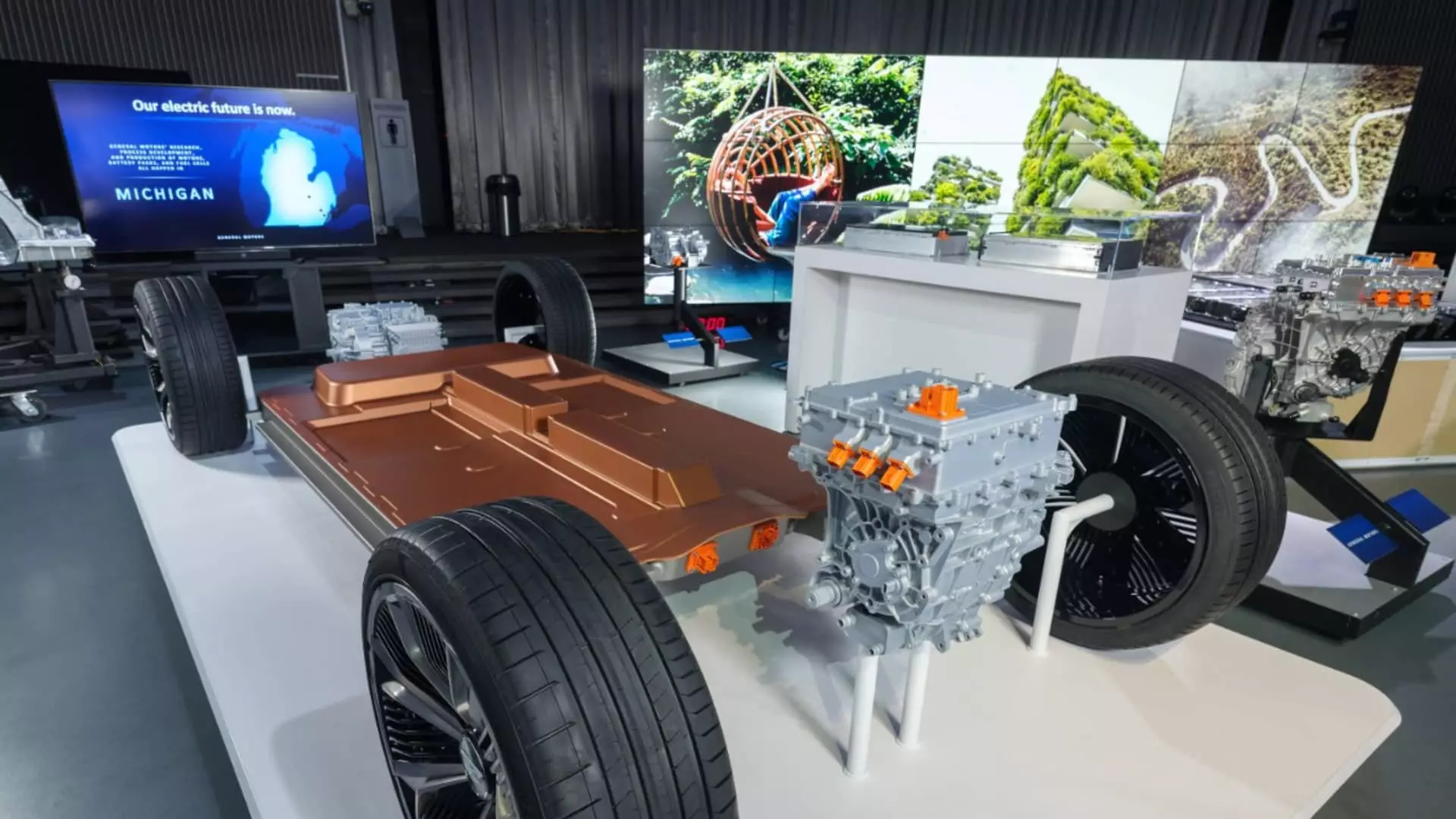In a notable development within the electric vehicle (EV) industry, General Motors (GM) has announced plans to divest its stake in a significant $2.6 billion battery cell plant located in Lansing, Michigan. This decision marks a major shift in GM’s strategy as it seeks to adapt to the evolving demands of the automotive market. By selling its share to LG Energy Solution, GM aims to optimize its operations while navigating the current complexities of EV production.
The Detroit-based automotive giant has indicated that it expects to recover approximately $1 billion of its investment anticipated in the facility. Such a move not only reflects GM’s intent to streamline its expenditures but also signifies a candid acknowledgment of the challenges the company faces in establishing profitable EV production lines amidst fluctuating consumer interest and market dynamics. The transaction, governed by a non-binding agreement set to close in the first quarter of the coming year, is viewed as a strategic financial maneuver designed to better position GM in a fiercely competitive landscape.
The Lansing plant represents the third facility within GM and LG’s joint venture, Ultium Cells LLC, following similarly established establishments in Ohio and Tennessee. Unveiled in early 2022, this 2.8 million-square-foot facility was anticipated to significantly bolster the manufacturing capabilities of battery cells crucial for GM’s forthcoming EV models. However, as GM grapples with production demand that has not aligned with expectations, reevaluating ownership stakes in such ambitious projects becomes necessary.
The sale is a direct response to the shifting landscape of electric vehicle manufacturing, compounded by uncertainty surrounding federal incentives for EV production and purchase. The current climate, marked by the upcoming presidency of Donald Trump, paints a complex picture for the industry, affecting investment decisions across the board. This strategic retreat by GM reflects a mature acknowledgment of market volatility, allowing the firm to focus on optimizing operational efficiency while mitigating risks associated with large-scale production capacity.
Importantly, the divestiture does not sever GM’s ties with LG Energy Solution; rather, it reinforces their collaborative efforts. GM is extending a long-standing 14-year partnership with LG to advance the development of prismatic battery cells. These newer battery designs, characterized by their flat, rectangular form, promise to enhance efficiency through more compact packaging, ultimately reducing EV costs and weights. Such innovations not only streamline the manufacturing process but also align with GM’s aspiration to boost vehicle performance and safety.
Paul Jacobson, GM’s Chief Financial Officer, underscored the importance of leveraging existing capacities to enhance production efficiency. With LG Energy Solution gaining immediate access to the Lansing facility to initiate equipment installation, GM positions itself to benefit from a facility nearing operational readiness. Presently employing nearly 100 individuals, the plant is slated to commence operations by the year’s end, further embedding GM’s manufacturing capabilities despite the strategic sale.
As GM embarks on this transformative journey, the sale of its stake in the Lansing battery cell plant not only reflects prudent financial foresight but also an acute awareness of the challenges facing the electric vehicle sector. This strategic repositioning allows GM to maintain its focus on innovation and collaboration, essential for thriving amidst the uncertainties of the automotive landscape. The ongoing partnership with LG Energy Solution and the introduction of prismatic cells encapsulate GM’s commitment to refining its production capabilities while adapting to the demands of consumers and the competitive marketplace, ensuring that the automaker remains a formidable player in the evolving world of electric mobility.


Leave a Reply